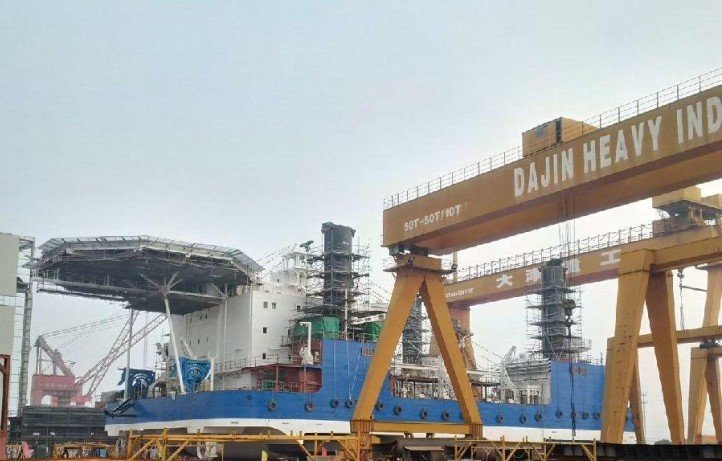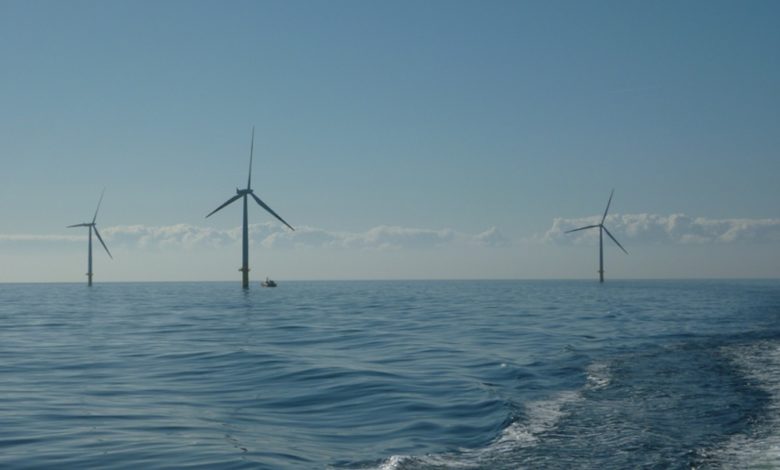Energy News Beat
President Donald Trump said he’ll speak with Russian President Vladimir Putin on Tuesday as the US presses for an end to fighting in Ukraine and European nations rush to bolster their support for Kyiv.
“We are doing pretty well I think with Russia,” Trump told reporters aboard Air Force One on Sunday. “We’ll see if we have something to announce maybe by Tuesday,” he said, adding that there is “a very good chance” for a deal.
The Trump administration has pushed for a ceasefire between Russia and Ukraine amid a flurry of renewed engagement between Washington and Moscow, three years after Russia’s full-scale invasion. Yet that effort has sparked angst among European leaders who worry Trump may concede too much on Ukraine’s behalf in a direct exchange with Putin and leave Kyiv without any longer-term security guarantees.
Asked what concessions he’d seek from Putin, who has repeatedly brushed aside calls for a quick halt to the fighting, Trump said much of the discussion will be about territory.
“A lot of land is a lot different than it was before the war, as you know,” he told reporters. “We’ll be talking about land, we’ll be talking about power plants — that’s, you know, that’s a big question.”
“We’re already talking about that, dividing up certain assets,” he added.
Putin has deflected efforts to stop the fighting as his troops, backed by North Korean soldiers, make incremental battlefield gains, including pushing Ukrainian forces back from parts of Russia’s Kursk region they’d seized in an surprise offensive last year. US envoy Steven Witkoff met with Putin last week but failed to secure a deal to pause the conflict.
Putin has said he’s seeking a more durable agreement, while insisting on a raft of conditions that would be difficult for Kyiv to accept. Russia has previously demanded that Ukraine become a neutral nation, significantly reduce the size of its armed forces and cede territory, starting with the land Russia has already seized in the war.
The European Union’s top foreign policy official, Kaja Kallas, said the conditions that Moscow has presented show that “they don’t really want peace.”
“Because they are presenting as conditions all their ultimate goals that they want to achieve from the war,” she told reporters before a meeting of EU foreign ministers in Brussels on Monday. “We really need to see that the ball is in Russia’s court.”
Maximum Pressure
Finnish Foreign Minister Elina Valtonen said concessions need to be made by Russia, because “otherwise you will be compromising international law and the UN Charter, which would have global implications.”
“To be loud and clear, I think the genuine effort by President Trump to really achieve peace here should not be misused by Putin to further weaken Ukraine,” she told reporters on Monday.
A bloc of European nations agreed on Saturday to keep tightening restrictions on Russia’s economy, though it wasn’t clear how they would go forward with that more than three years after a slew of US and European sanctions over the war went into effect.
“It’s really important at this point that we put maximum pressure on Russia,” UK Prime Minister Keir Starmer said Saturday following a call with about two dozen other leaders, including the heads of Australia, Canada, New Zealand and several European nations.
European officials also thrashed out plans for a peacekeeping force of more than 10,000 troops for Ukraine, the Sunday Times reported, citing senior government sources. The bulk would likely come from the UK and France, according to the newspaper, which also said that about 35 countries have agreed to supply weapons, logistical and intelligence support to the mission.
But European leaders want to see any force on the ground in Ukraine backed up by US security guarantees in the form of air power, intelligence and border surveillance. It’s far from clear whether Trump would be willing to do that. While he’s said he could ramp up economic and political pressure on Russia if Putin doesn’t come to the table, he’s been generally far more critical of Ukraine and President Volodymyr Zelenskiy.
The post Trump Says He’ll Speak With Putin Tuesday on Ukraine Truce Push appeared first on Energy News Beat.














